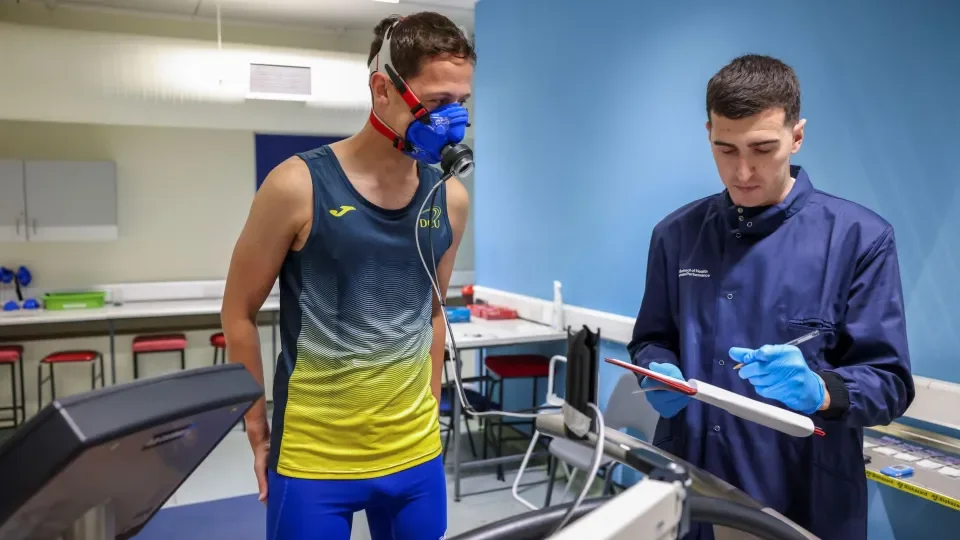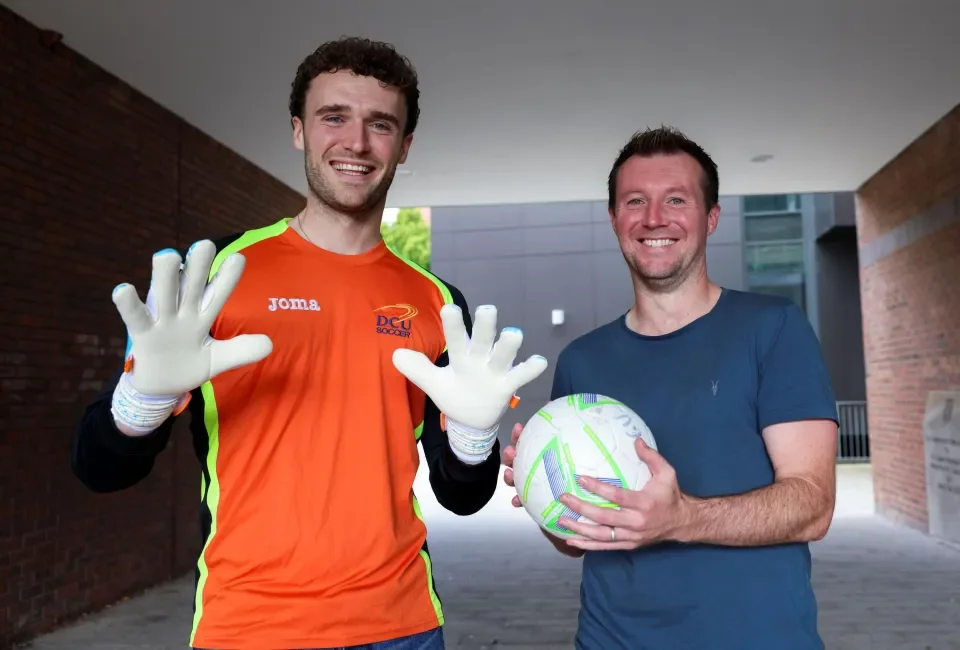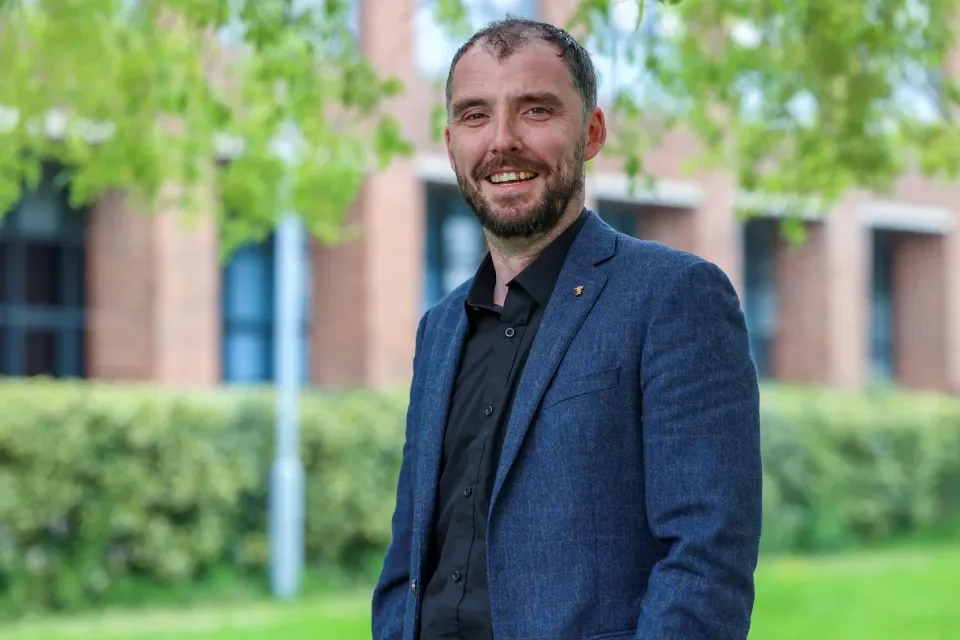
Research Newsletter - Issue 92: Spotlight
DCU’s Multi-Disciplinary Contributions to the World of Sports Research
March 2024
Dublin City University has a long association with sport, including many successes in intervarsity GAA tournaments such as the Sigerson and O'Connor cups, as well as prominent sporting alumni such as Irish rugby international Tadgh Furlong and Women's Hockey World Cup silver medallists Hannah Matthews and Alison Meeke.
The University is home to the School of Health and Human Performance (HHP). The school’s current research partnerships, in collaboration with SFI Insight, include the Premier League, Leinster Rugby, Premiership Rugby in the UK, as well as the GAA. Researchers in the School of Health and Human Performance have also led projects of national significance such as Moving Well Being Well, Kids Active Y-PATH and the All-Island Children’s Sport Participation and Physical Activity. Other schools across DCU are also producing high quality, impactful research touching on all aspects of professional and amateur sports.

Aidan Brady (right)
A recent collaboration between the School of Health and Human Performance, Insight, and the School of Computing used GPS technology to gather data on performances from 41 Gaelic games referees in 326 All Ireland and National Football League games. Dr Aidan Brady (formerly HHP), Prof. Niall Moyna (HHP), Dr Michael Scriney (Computing) and Dr Andrew McCarren (Computing) wanted to compare activity profiles of referees at All Ireland level, and in each of the four divisions of the NFL to inform future conditioning programmes for referees.
Another project within the School of Computing and Insight is looking to optimise data gathered in athlete tracking programmes for AI analysis. While large volumes of data can be gathered using wearable technology, these simple data don’t always lend themselves to machine learning analysis. Valerio Antonini, Dr Alessandra Mileo and Prof. Mark Roantree looked to overcome this by focusing on events and actions: variables like speed are converted into categories like ‘standing,’ ‘walking,’ ‘jogging,’ ‘running,’ ‘high-intensity running,’ and ‘sprinting’ on a second-by-second basis. This data can be used by coaches to prevent fatigue and injury among athletes.

Michael Quinn and Dr David McGovern
Michael Quinn and Dr David McGovern from the School of Psychology delved into the minds of goalkeepers to explore how they perceive the world. World cup winning keeper Gianluigi Buffon famously called his colleagues between the sticks as ‘weird guys… different from everyone one else (who are) always ready to save the day.’
Quinn and McGovern went a long way to test this hypothesis for the first time by examining ‘multisensory integration’ in goalkeepers at a range of levels. Information regarding the way their brains combine information from multiple organs yielded key findings that indicate differences in how goalkeepers perceive things.
DCU researchers are also focused on the sporting activities of amateur athletes and more casual runners. Along with a team from HHP, Dr Aoife Burke examined running-related injuries in 258 recreational runners over the course of a year to determine the influence of factors such as injury history, training, acceleration, and impact to determine injury prevention tactics. A combined School of Health and Human Performance and Insight team led by Aisling Lacey (Insight) worked with runners from local running clubs to devise an ‘injury continuum.' This continuum allows runners and clinicians to understand the potential progressions of low level ‘niggles’ to far more serious, potentially career-ending issues.

Dr Gary Sinclair
Taking a more off-the-field focus, Business School researchers Dr Gary Sinclair, Prof. Theo Lynn and Dr Colm Kearns have worked with collaborators from a range of UK universities on a project about high level sportswashing.
The study examines in detail an under-researched area of longer term investment-based strategy of sportswashing, using English Premier League team Manchester City (MCFC) as an example. The study used Python programming to analyse thousands of comments from Manchester City fans in a popular online forum. Their work has revealed that a football club’s fans can be particularly significant contributors to, and actors within, sportswashing.
The breadth of sports related research at DCU speaks to the diversity of social and scientific issues the research community are seeking to tackle, as well as a strong spirit of interdisciplinary collaboration. The projects also reflect the leadership demonstrated by researchers at DCU in projects involving collaborators across Ireland and abroad.
